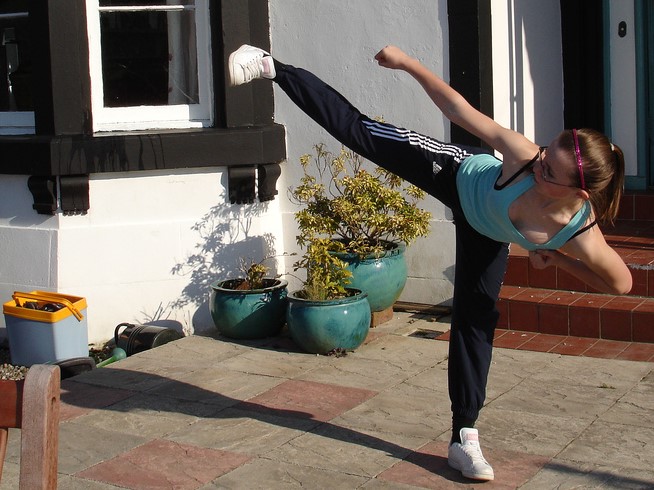Does this happen to you? You prepare well before a presentation. Yet, when the real thing comes, you can’t speak a word. You wonder why it happens to you. ‘Why me?’
Well, you don’t have to be sad. If you have a higher level of language proficiency, will it make much difference to your career? But of course, the question is how, how to enhance your levels of English.
—————————————
There are lots of ways, one of which is to have a better understanding of how English sentences work. So how do English sentences work? Before you get the answer, look at the two dogs in the picture and read the following sentences. (By the way, do you hear them talking?)
‘Catch me if you can’. Does the sentence look familiar? Now, read another not so familiar one: ‘If you can catch me’. Are the two sentences the same? Can you spot any differences? If you think there is no difference, well, think again. So what are the differences between the two sentences? Well, do you spot one? What is it?
—————————————
The difference is where you put ‘If you can’, as shown below:
If you can —–> catch me <—- if you can
So what is the difference? The difference is about a rule in English. What is it? If you think something is big or important, you put it at the end of a sentence.
—————————————
(Sentence 1) Catch me if you can.
So, when you say, ‘ Catch me if you can’, the big thing is ‘if you can.’ In other words, you are challenging someone. You are actually saying: You think you can catch me?
—————————————
(Sentence 2) If you can catch me.
But the second sentence is different. The focus is on ‘catch me’, not on your ability. Want more examples? There are two authentic (real) ones (from native speakers of English). ‘If you’d like, we’ll make an appointment (to fit the appliance)’. In this example, the big thing is ‘make an appointment’ to increase your sales. The second example is: ‘When you return payment of this bill, just check the box in the lower right-hand corner’. In this sentence, the big thing is ‘check the box’.
—————————————
There is one more example from a giant: It is not the strongest of the species that survive, nor the most intelligent, but the one most responsive to change.
So which part is the big point from the words of Charles Darwin? To wrap up the Feel Good tip is: safety comes first, but big things come last.
—————————————

.jpg)

.jpg)








